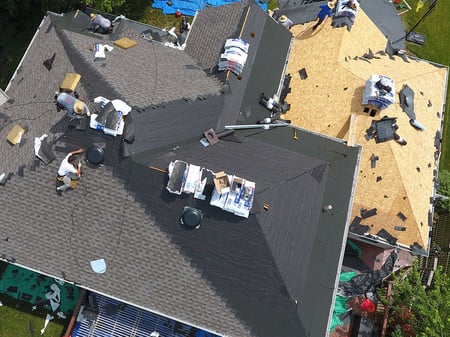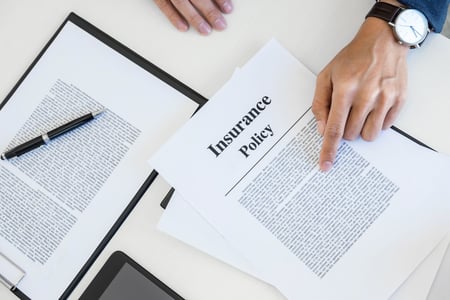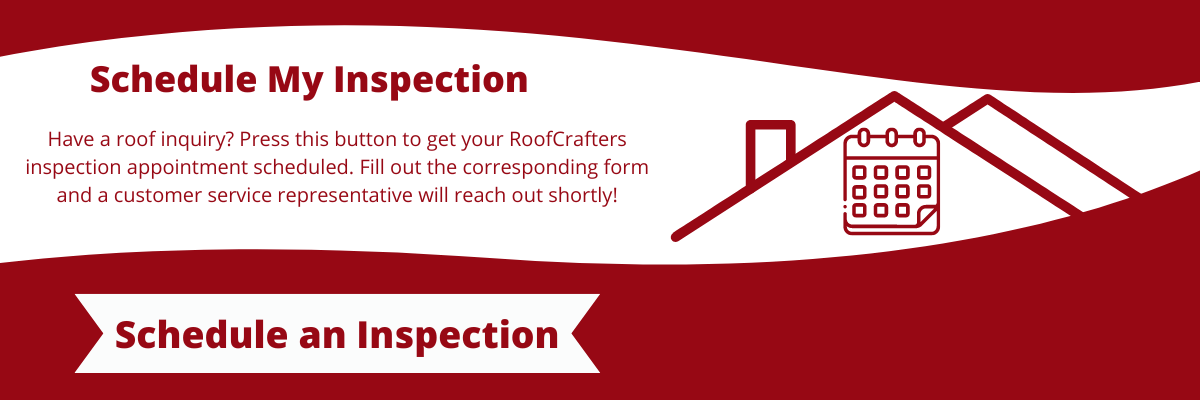Does Insurance Always Cover a Full Roof Replacement?
February , 2024 | 5 min. read

When faced with the need for a roof replacement, homeowners often turn to their insurance policies for coverage. However, navigating insurance coverage for roof replacements can be complex, with varying terms, limitations, and potential gaps in coverage. Understanding what your policy covers and exploring alternative options becomes essential in ensuring your home's structural integrity while managing costs effectively
At RoofCrafters, we know how confusing this can be, and how stressful it is when your insurance company decides to not cover the entire cost of your replacement, leaving you and your wallet to do the rest of the heavy lifting. But, by taking proactive steps and considering all available options, you can navigate the process of roof replacement with confidence, ensuring your roof replacement project runs smoothly.
So, if you’re due for a replacement, but are concerned about whether or not your insurance will cover the entire cost, you’re in the right place. In just a moment, you’ll learn if insurance companies always front the entire cost of a new roof, when they don’t, and if financing is worth looking into if your policy doesn’t cover all of the bases. Let’s begin!
Does Insurance Always Cover a Full Roof Replacement?

Insurance coverage for roof replacement can vary widely depending on the terms of your policy, the cause of the damage, and the extent of the damage. In many cases, insurance policies will cover the cost of a full roof replacement if the damage is due to a covered peril such as a storm, fire, or vandalism. However, there are certain factors to consider:
Cause of damage: Insurance typically covers damage caused by sudden and accidental events, such as storms or fires. However, damage from normal wear and tear may not be covered.
Policy coverage: Review your insurance policy carefully to understand what types of damage are covered and what deductibles apply. Some policies may cover the full cost of replacement, while others may only cover a portion or provide actual cash value rather than full replacement cost.
Age and condition of roof: Insurance companies may consider the age and condition of your roof when determining coverage. If your roof is old or poorly maintained, the insurance company may offer less coverage or deny the claim altogether.
Local regulations and building codes: Your insurance coverage may be influenced by local building codes and regulations. For example, if your roof needs to be upgraded to meet current building codes during replacement, your insurance may cover these additional costs.
Policy exclusions: Some insurance policies have exclusions for certain types of damage or situations. For instance, some policies may exclude coverage for damage caused by floods or earthquakes, requiring separate insurance policies for these risks.
It's essential to thoroughly review your insurance policy and consult with your insurance provider to understand what is covered and what steps you need to take in the event of roof damage. Additionally, documenting the damage with photographs and keeping records of any repairs or estimates can help support your insurance claim.
What If Insurance Doesn’t Cover the Full Cost of My Roof Replacement?

If your insurance policy doesn't cover the full cost of roof replacement, there are several options you can explore including:
Negotiate with your insurance company: You can try negotiating with your insurance company to see if they can provide additional coverage or reconsider their assessment of the damage. Providing evidence such as quotes from contractors or documentation of the extent of the damage may help support your case.
Seek additional coverage: Depending on the reason for the insufficient coverage, you may be able to purchase additional coverage or riders to your policy to cover the gap. This could include coverage for specific perils like wind or hail damage or increasing coverage limits for your roof.
Explore financing options: If you're unable to cover the cost of roof replacement out of pocket, you could explore financing options such as personal loans, home equity loans, or lines of credit. Be sure to carefully consider the terms and interest rates associated with any financing option.
Consider partial repairs: If a full roof replacement is not covered, you may be able to opt for partial repairs instead. This could involve repairing the damaged sections of the roof rather than replacing the entire roof. However, keep in mind that this may only be a temporary solution, and you may need to replace the roof entirely in the future.
Shop around for contractors: Obtain multiple quotes from reputable roofing contractors to ensure you're getting a fair price for the work needed. Some contractors may offer financing options or be willing to work with you to find a solution that fits your budget.
Explore government assistance programs: Depending on the cause of the damage, there may be government assistance programs available to help cover the cost of repairs or replacement. This could include programs for natural disaster recovery or energy efficiency upgrades.
It's important to carefully weigh your options and consider the long-term implications of each before making a decision. Consulting with a trusted insurance agent or financial advisor can also provide valuable guidance in navigating this situation.
Should I Consider Financing?

Financing can be a viable option for covering the cost of roof replacement if you're unable to pay for it upfront. It allows you to spread out the cost over time, making it more manageable for your budget. However, it's crucial to carefully consider the terms and interest rates associated with any financing option to ensure you're not paying more than necessary in the long run.
Additionally, be mindful of your ability to make monthly payments and factor in any potential financial strain. Ultimately, financing can provide flexibility and access to necessary funds, but it's essential to choose a reputable lender and fully understand the terms before committing.
Understanding Roof Replacement Coverage
To recap, navigating insurance coverage for roof replacement requires careful consideration and understanding of your policy's terms and limitations. While insurance typically covers damage from sudden and accidental events, such as storms or fires, it may not always provide full coverage for a roof replacement. In such cases, exploring alternative options becomes essential.
Negotiating with your insurance provider, seeking additional coverage or riders, and exploring financing options can help bridge the gap in coverage. However, it's crucial to assess each option's long-term implications, including financial commitments and potential future repairs. Additionally, considering partial repairs or exploring government assistance programs may offer alternative avenues for addressing roof damage.
By thoroughly researching and weighing these options, homeowners can make informed decisions to ensure the integrity and safety of their homes while managing costs effectively. Consulting with a reputable roofing contractor, like RoofCrafters, can save you from a world of confusion. So, hit that “Schedule an Inspection” button, and allow our roofing experts to guide you in the right direction!
My name is Cassie, and I’m the Content Manager here at RoofCrafters. I was born and raised in Chicago, Illinois, and made my way out to Florida post-college graduation. I’m incredibly passionate about writing and creating valuable content that helps others with the collaboration of my marketing team. When I’m not working, I enjoy shopping (a little too much), spending time at the beach, and reading!



